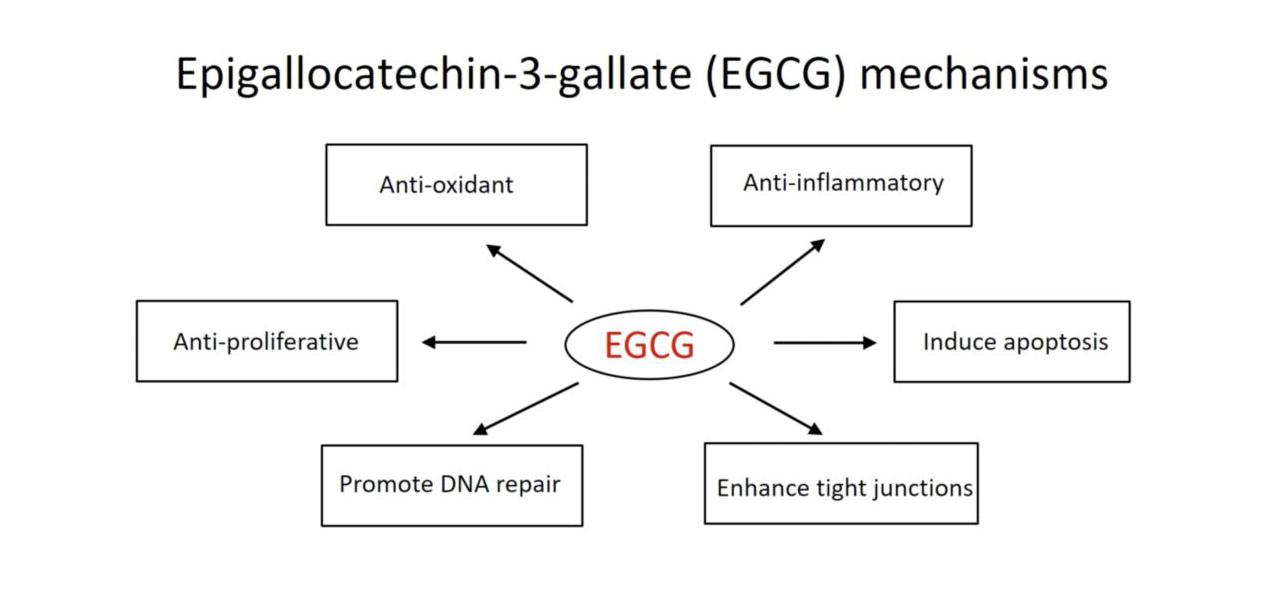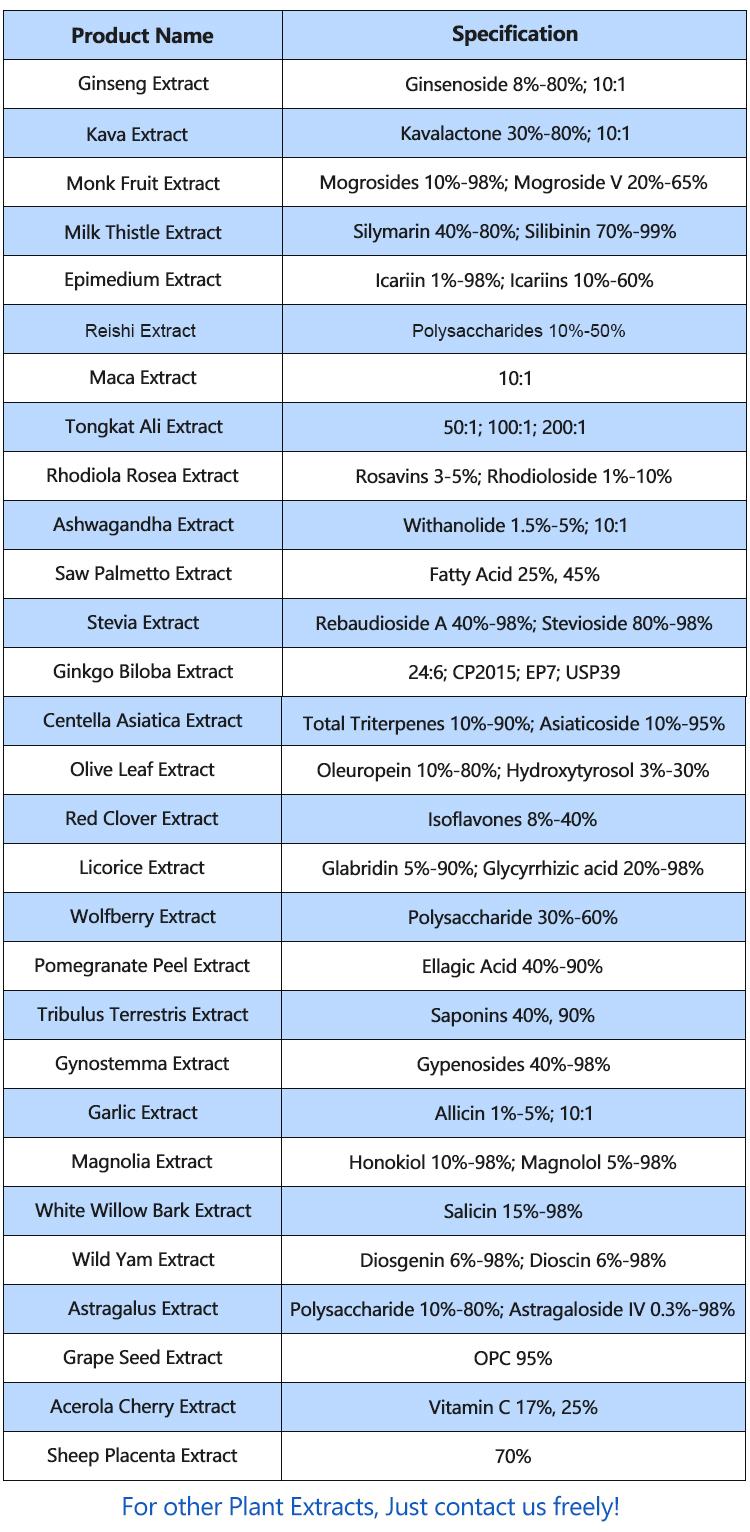EGCG (epigallocatechin gallate) is a type of catechin, which is a class of flavonoids. Flavonoids are a group of plant compounds with antioxidant properties. EGCG is specifically found in green tea. The basic ingredients of EGCG include:
Epigallocatechin (EGC): This is one of the four main catechins found in green tea and is a precursor to EGCG.
Gallate Group: The gallate group is attached to epigallocatechin, forming epigallocatechin gallate. The gallate group is crucial for the biological activities and health benefits associated with EGCG.
EGCG is known for its potent antioxidant properties and is believed to contribute to the health benefits associated with green tea consumption.

Efficacy and effect of EGCG(epigallocatechin gallate)
Epigallocatechin gallate (EGCG) is a polyphenol found in green tea, and it is known for its potential health benefits. Here are some aspects of the efficacy and effects of EGCG:
Antioxidant Properties: EGCG is a potent antioxidant, which means it helps to neutralize free radicals in the body. Free radicals can cause oxidative stress and damage to cells, leading to various health issues. The antioxidant properties of EGCG may contribute to its protective effects against certain diseases.
Anti-Inflammatory Effects: EGCG has been studied for its anti-inflammatory properties. Chronic inflammation is associated with various health conditions, including cardiovascular diseases and certain cancers. EGCG’s ability to reduce inflammation may have positive effects on overall health.
Heart Health: Some studies suggest that EGCG may help improve cardiovascular health. It may contribute to lowering blood pressure and reducing levels of bad cholesterol (LDL cholesterol).
Weight Management: EGCG has been investigated for its potential role in weight management. It may enhance fat burning and boost metabolism, which could be beneficial for individuals looking to manage their weight.
Cancer Prevention: There is ongoing research on the potential anti-cancer properties of EGCG. It is believed to have protective effects against certain types of cancer due to its antioxidant and anti-inflammatory properties. However, more research is needed to fully understand its role in cancer prevention.

Neuroprotective Effects: Some studies suggest that EGCG may have neuroprotective effects, which could be beneficial for brain health. It may be involved in protecting against neurodegenerative diseases, such as Alzheimer’s and Parkinson’s.
Antimicrobial Properties: EGCG has demonstrated antimicrobial activity, which means it may help in inhibiting the growth of certain bacteria and viruses. This property has implications for oral health and may be explored in the context of infectious diseases.
It’s important to note that while there is evidence supporting these potential benefits, the research on EGCG is ongoing, and not all effects have been conclusively established. Additionally, the optimal dosage and long-term effects of EGCG supplementation are areas of ongoing investigation.
Before incorporating EGCG supplements into your routine, it’s advisable to consult with a healthcare professional, especially if you have any existing health conditions or are taking medications.
